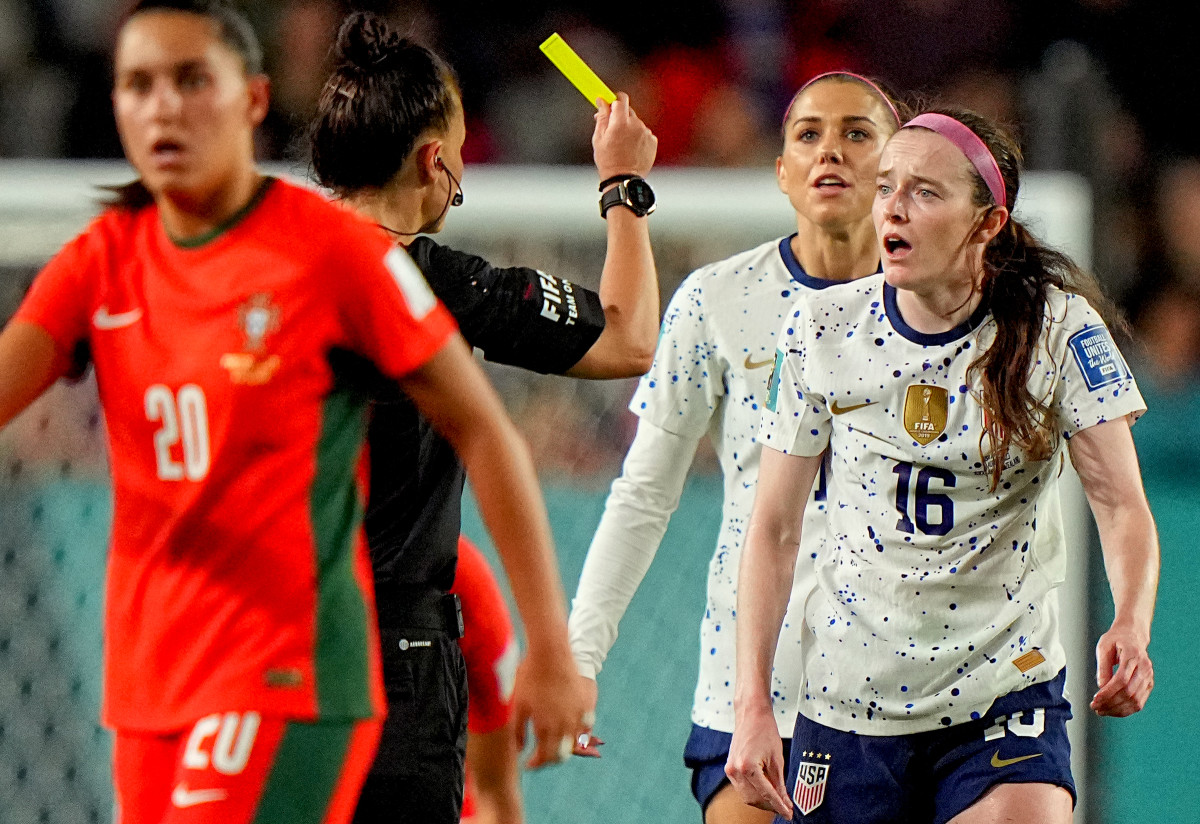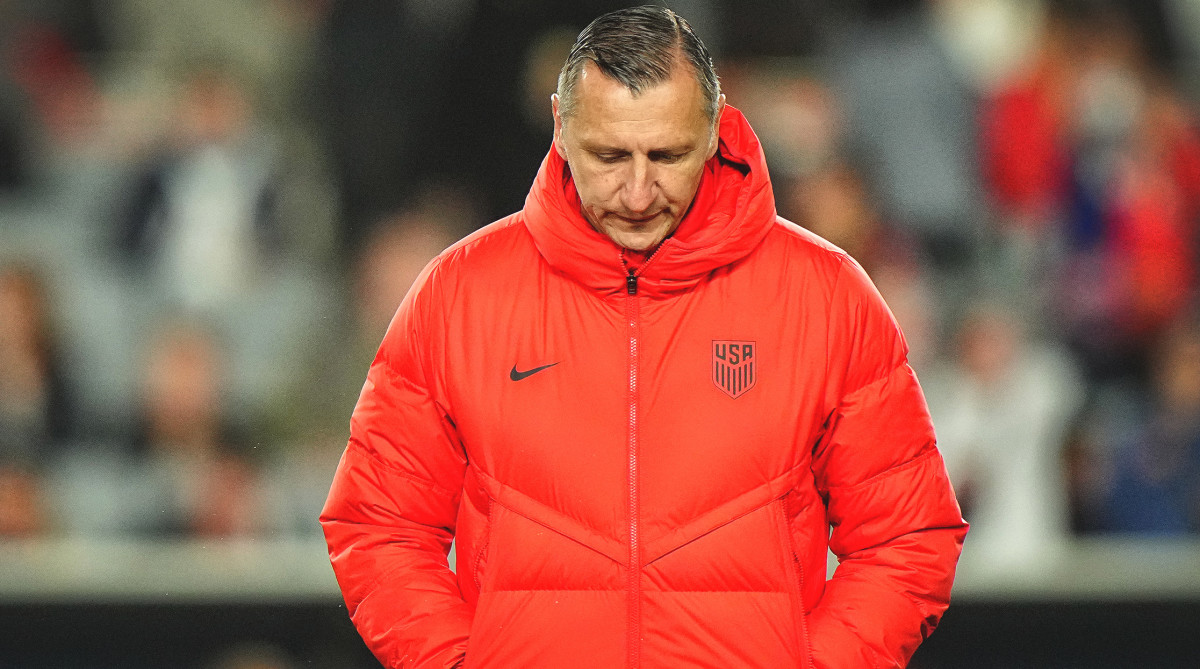This May Be the Worst We’ve Ever Seen the USWNT Play

It’s difficult to recall another time the U.S. women’s national team has looked this out of sorts on this big of a stage. Vlatko Andonovski’s side struggled to a scoreless draw against Portugal in its Group E finale Tuesday, advancing to the knockout stage with the help of the goalpost, denying what would've been a late winner for Women’s World Cup debutants Portugal. Following the scare, the USWNT moved to a five-back defensive formation, desperately willing the game clock to run out and the final whistle to sound.
Portugal was this close 😬 pic.twitter.com/UMIZnAqyib
— FOX Soccer (@FOXSoccer) August 1, 2023
In a position almost entirely unfamiliar to the U.S. players and fans, the USWNT was frantically clinging to the 0–0 scoreline—it was Portugal’s game to lose, not the four-time World Cup champions’. The result earned the U.S. runner-up status, as elsewhere in New Zealand, the Netherlands walloped Vietnam, 7–0.
What went wrong? It’s hard to pinpoint just one thing in an outing so holistically uninspiring. The players, for their part, provided their postmortems to Fox’s Jenny Taft after the match, with Alex Morgan calling the finishing in front of the net “unlucky,” Megan Rapinoe saying the team needed to play “calmer,” Rose Lavelle revealing the team’s disappointment in themselves and Lindsay Horan declaring, “It's not good enough for us.”

While a commendable endeavor by the players, locating a single failure or breakdown feels futile, as the issues plaguing the USWNT are more systemic than anything else. From the jump, the U.S. appeared aimless, with no clear game plan in sight. The squad’s press was disorganized, with the forward and midfield lines out of sync on when to step despite Andonovski starting Lynn Williams, one of the U.S.’s best disruptors on the front line. The buildup was slow and disjointed, players were left out on islands—with little in the way of off-the-ball movement—and finishing in front of the net lacked bite. Defensively things weren’t much better, as the middling midfield once again caused problems for the Americans, exposing the team to Portugal’s unrelenting counterattack. In the first half, Horan recorded just 14 of 24 accurate passes, while Andi Sullivan won only two of her five ground duels and one of three aerial duels. Lavelle, breaking into the starting lineup after subbing in the first two games, injected the game with flair and dynamism, but in another blow to the U.S., the star midfielder picked up her second yellow card, sidelining her for the USWNT’s knockout game, likely against Sweden, in what could be a World Cup–defining absence.
Tuesday’s poor performance, while jarringly haphazard, isn’t completely unprecedented—especially in the Andonovski era. The team’s last major tournament outing at the Tokyo Olympics featured a similarly incoherent strategy and approach. (The USWNT opened the Summer Games with a comprehensive defeat at the hands of Sweden—a cloud hanging over its likely round-of-16 meeting). Since the summer of 2021 and the Olympic wake-up call, little has shifted in terms of clarity around the squad’s identity. Early in his tenure, Andonovski was billed as a tactical savant, but that hasn’t necessarily been born out on the pitch. Is the U.S. an aggressive team dedicated to the high press? Or a possession-minded group not unlike Spain? Perhaps more conservative, opting for a mid-block? Under Andonovski the USWNT has been some version of all of these things, while never really looking comfortable.

Without a statement win or complete performance, the U.S. now moves on to the next phase of the World Cup, forced to conjure up confidence as a daunting Swedish side likely awaits. No one was more vocal about the need to put this group stage in the rearview mirror than veteran defender Kelley O’Hara, who delivered a fiery speech to the squad after the disappointing Portugal draw.
“I told the team, we did what we had to; do we’re moving on. … We have our next game in front of us, and that’s all that matters,” O’Hara told Fox.
A short-term memory could certainly benefit the U.S., leaving the lackluster start to the tournament behind it, and offloading the baggage of its haunting Olympic loss to Sweden ahead of Sunday’s rematch. Will the USWNT be able to hone its approach and narrow in on a compelling identity in just five days? Unlikely. What the U.S. does have at its disposal, however, is a deep pool of forceful talent. Maybe bumping Julie Ertz into the midfield could bolster the spine of the pitch, or overwhelming Sweden with a relentless front three of Sophia Smith, Rodman and Williams could be just enough to pull this team in peril over the finish line. Whether a resolute Andonovski will make those changes is a different story and will define not only his time as head coach but also determine the USWNT’s World Cup fate.
